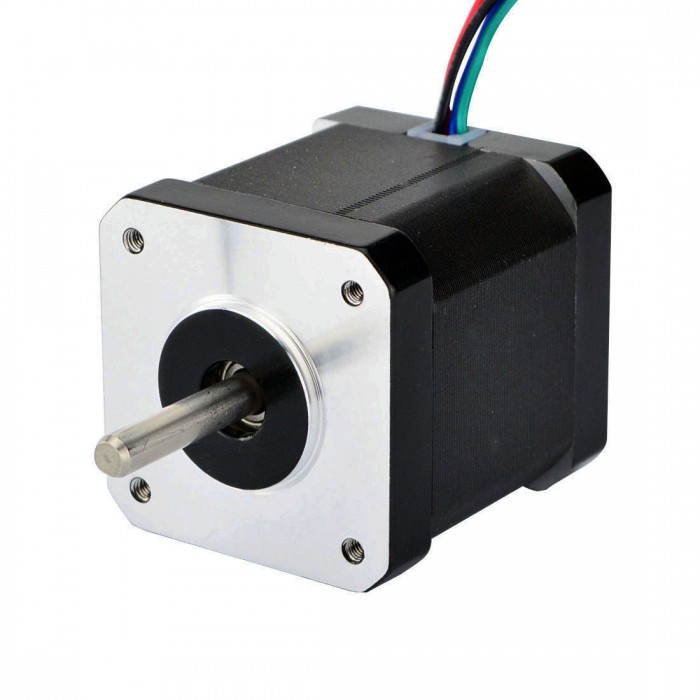Stepper motors are relatively simple mechanisms: A series of electromagnetic coils are activated in a specific sequence to spin a motor shaft a precise number of degrees. The NEMA specification is what allows stepper motors to be identified, and references the size of the faceplate of the motor.

17HM19-2004S
This variety of stepper motors Nema 17 is rather rare in the world of 3D printers, simply because they are almost too big and powerful. Common applications of this motor are for moving extremely large or heavy print beds in Prusa i3 style printers.
Being longer and distinguished than their counterparts, 50-56 N⋅cm motors are rarely used on moving gantries, as their mass causes issues with inertia at higher printing speeds. Typically used in a fixed position, these motors are usually better suited to CNC work than 3D printing applications.
However, if you need to move a large, heavy print bed quickly, like on the Creality CR-10 S4 and S5, then these motors are the ones for you.
NEMA Specifications and Torque Ratings of Stepper Motor
HOW TO CONTROL NEMA17 STEPPING MOTOR BY USING ARDUINO AND A4988 DRIVER

17HM19-2004S
This variety of stepper motors Nema 17 is rather rare in the world of 3D printers, simply because they are almost too big and powerful. Common applications of this motor are for moving extremely large or heavy print beds in Prusa i3 style printers.
Being longer and distinguished than their counterparts, 50-56 N⋅cm motors are rarely used on moving gantries, as their mass causes issues with inertia at higher printing speeds. Typically used in a fixed position, these motors are usually better suited to CNC work than 3D printing applications.
However, if you need to move a large, heavy print bed quickly, like on the Creality CR-10 S4 and S5, then these motors are the ones for you.
NEMA Specifications and Torque Ratings of Stepper Motor
HOW TO CONTROL NEMA17 STEPPING MOTOR BY USING ARDUINO AND A4988 DRIVER
没有评论:
发表评论